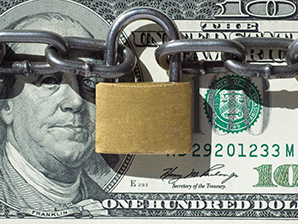After 7 weeks of direct losses, the markets have entered a long weekend with a positive note: their one best week since 2020. The S&P 500 added more than 6% erasing its losses since May.
Sudden price fluctuations, coupled with even more sudden bullish changes, even if they are temporary, have brought buyers discounted to the world of equity. ‘Buy a dip’ is a real thing, and a very effective way towards profiting a long-term portfolio, and the current location is ready for this type of trade.
Speaking to RBC Capital, the head of equity in the US Lori Calvasina commented: "It's worth it right now to start hunting. If you can get people free from the important issues going forward, I think stocks are cheap. Enough to buy."
MeiraGTx Holdings (MGTX)
We will start with MeiraGTx Holdings, a biopharmaceutical company-class company focused on the development of genetic therapies for complex diseases. The MeiraGTx research program has three broad areas, including neurodegenerative diseases, severe xerostomia, degenerative eye diseases and / or hereditary diseases. Each of these areas can have a significant impact on a patient's quality of life, and each has its own unmet medical needs, providing an opportunity for a firm to create effective treatment.
MeiraGTx has a versatile and functional research pipeline, consisting of 8 pre-clinical and 6 track tracks in various stages of clinical evaluation. The flagship program, AAV-RPGR, is a new genetic therapy designed to treat X-linked retinitis pigmentosa (XLRP), a type of genetic blinding inherited from the mother line. AAV-RPGR, also known as botaretigene spapaparvovec, is still being developed in collaboration with Janssen, and is currently the subject of a Phase 3 Lumeos clinical trial enrollment and patient dose. MeiraGTx expects to release full data on a previous Phase 1/2 trial later this year.
The company's second leading candidate is AAV-AQP1, a treatment for xerostomia. This is a condition of the salivary glands, which have a variety of causes, in which the glands fail to produce enough saliva to prevent the mouth from drying out. MeiraGTx has completed drawing the two countries' combined clusters in the Phase 1 trial during 1Q22, and will present the study data during Q4. A placebo-controlled trial of Phase 2 in the planning stages, which will begin scheduled for the end of this year.
In addition to its robust development programs, MeiraGTx has the advantage of continuous fundraising, which comes from licensing agreements with partner companies - such as Janssen, mentioned above. At 1Q22, the company reported $ 5.6 million in such funds, an increase of 21% year-on-year. MeiraGTx expects to receive another $ 13.1 million payment from Janssen during Q2.
"We think the JNJ interaction across all ocular indicators (XLRP, achromatopsia, options for others) provided pharma validation and affected the economy in favor of the previous $ 100m offer, up to a $ 340m milestone, and 20% non-exempt profits. Importantly, JNJ funds all. clinical costs, so MGTX has a fair share of ownership against biotechs of the same size, "notes Issi.
"Overall, we continue to like the set provided by the unwanted measurements and the POC of the eye clinic, salivary glands, and the CNS ... In this measurement, we think stock is the best-selling stock," the analyst said.
Considering all of this, Issi estimates the MGTX Outperform (i.e. Buy), while its $ 27 price target raises a staggering 228% increase in one year. (Viewing Issi record.
Wall Street strongly agrees with RBC's view, as shown by the Strong Buy consensus rating. The shares are priced at $ 8.23 and their median target at $ 29 shows a 252% rise over the next 12 months.
ISun, Inc. (ISUN)
And now we move on to the energy technology sector, where iSun has been running the business for 50 years. The company operates in the solar energy niche, providing a wide range of products for solar projects on all scales: residential, commercial, industrial, and utilities. The company also provides administrative services and services as well as software programs for solar energy operations. In total, iSun has generated more than 348 million kilowatts of energy through its solar systems.
ISun has benefited in recent months from the political will to promote alternative, green, energy systems, including solar. The company's revenue for 2021 reached $ 33.3 million, a profit of 60% over the $ 20.8 million reported by 2020. In the first quarter of 2022, iSun reported $ 15.1 million in the top line, 107% profit over the 1Q21 result, and gross profit of $ 3.2 million, a significant annual improvement from $ 100K reported in the quarterly quarter. last. In a key metaphor for the company's future, iSun reported a backlog of $ 128.3 million at the end of 1Q22. About 80% of these backlogs come from the company's commercial and industrial sector.
Despite these tangible results, iSun shares are down 47% in 2022. However, Roth Capital analyst Justin Clare sees the current low price as an opportunity, based on the iSun business that could move forward.
"By 2023, we have saved our revenue and adjusted EBITDA forecasts, although we see the potential for positive results if the panel findings are resolved. With the 2022 project delay in 2023, there is a chance that ISUN could build a meaningful part of two 110MW projects. . with a revenue of ~ $ 1 / W, or ~ $ 220mn of revenue. developed, we believe that sharing is over-selling, ”explains Clare.
All in all, this unique energy company has taken reviews from 2 analysts, both of whom agree that the purchase proposal, which makes the average purchasing rate agree unanimously. ISUN shares are selling for $3.18 and the $8.25 average target suggests a 159% upside from that level.









